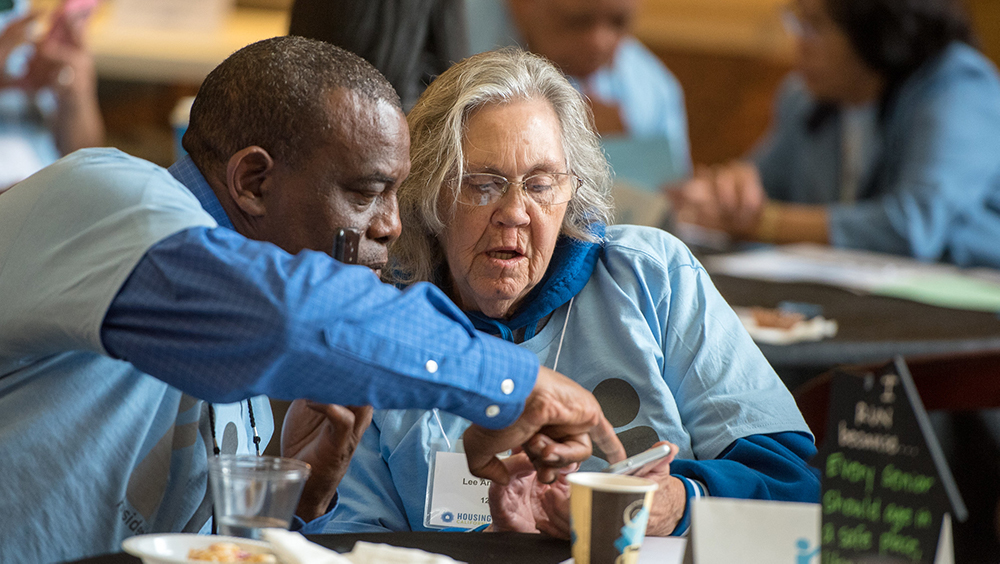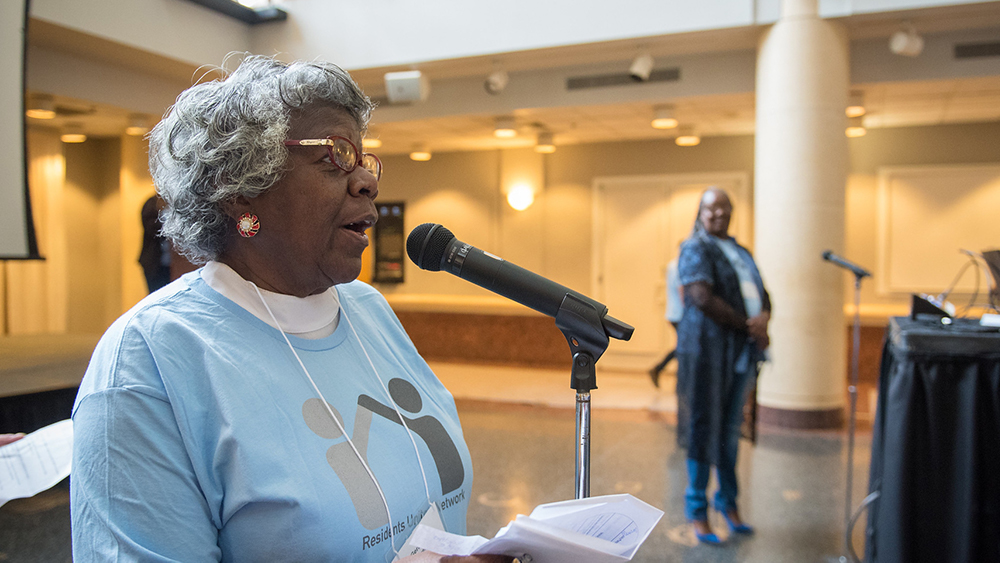Our Model

There Ought To Be A Law
Each fall, we kick off the Residents United Network year with a giant brainstorm called There Ought To Be A Law. RUN members meet up in regional convenings across the state in English and Spanish and think together about what changes in housing they’d like to see happen in California. (Our record is 224 ideas, but we’ll probably beat that next year.)
Then, we narrow down the list of ideas together. We send out a survey to all RUN members. We use the results of that survey at our annual Summit, where senior leaders spend two days deciding RUN’s priorities – for both bills and the budget – for the upcoming year. Then we prep RUN members to fight for those ideas at the Capitol, culminating in a big Lobby Day in spring. After that, we run campaigns to get our bills across the Governor’s desk – and then start all over again.
Changing Laws


